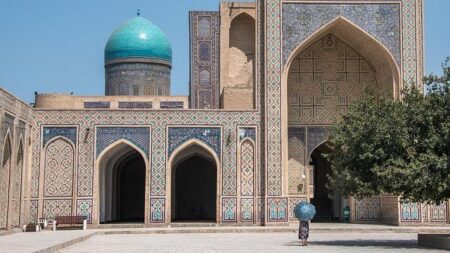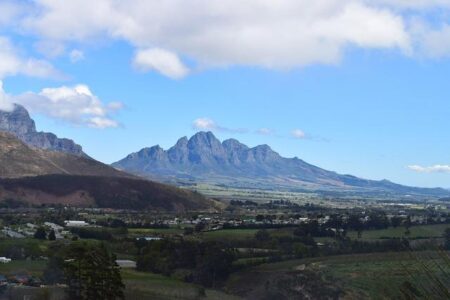In a significant shift in geopolitical dynamics, Turkish intelligence has reportedly established an operations hub in Niger, marking an ambitious effort to extend its influence across Africa. The move underscores Turkey’s growing interest in the continent and its strategy to bolster security cooperation and intelligence sharing in regions facing various challenges, from terrorism to political instability. Analysts suggest that this development could alter the balance of power in West Africa, as Turkey seeks to enhance its role in a region increasingly characterized by foreign interferences and complex conflicts. As the implications of this burgeoning presence unfold, questions arise about the potential impact on local governance, security partnerships, and the broader geopolitical landscape.
Turkish Intelligence Expands Influence in Africa with New Operations Hub in Niger
The establishment of a new operations hub by Turkish intelligence in Niger marks a significant escalation in Ankara’s covert efforts to expand its influence across Africa. With strategic geopolitical interests in mind, this move is expected to enhance Turkey’s ability to project power, particularly in regions where instability and opportunities for influence are ripe. Analysts suggest that the hub will facilitate enhanced intelligence-sharing and operational cooperation not only with local governments but also with various non-state actors, thereby deepening Turkey’s foothold on the continent.
Key factors driving this expansion include:
- Natural Resources: Africa’s abundance of minerals and energy resources, crucial for Turkey’s economic ambitions.
- Security Cooperation: A growing partnership with African nations to combat terrorism and manage migration issues.
- Political Alliances: Strengthening relationships with key regional powers to influence decision-making processes.
| Region | Focus Areas | Strategic Significance |
|---|---|---|
| North Africa | Counter-terrorism, Trade | Gateway to Europe |
| West Africa | Resource Acquisition, Political Influence | Mineral Wealth |
| Horn of Africa | Maritime Security, Humanitarian Aid | Strategic Waterways |
Strategic Implications of Turkey’s Presence in the Sahel Region
The establishment of Turkey’s operations hub in Niger significantly shifts the strategic balance in the Sahel region, providing Ankara with a platform to expand its influence across Africa. This move not only reflects Turkey’s commitment to deepening its geopolitical footprint but also aligns with its broader ambition to enhance its presence in regions traditionally dominated by Western or regional powers. The operational focus will likely cover several key areas:
- Intelligence Sharing: Enhancing local capabilities through intelligence cooperation with Sahelian nations.
- Military Training: Providing training and resources to local security forces to combat terrorism and insurgency.
- Political Alliances: Strengthening diplomatic ties with governments in the region to create a pro-Turkish political landscape.
Moreover, Turkey’s growing footprint could lead to a recalibration of relationships among African nations. Increased military cooperation may affect regional dynamics, as countries weigh their relationships with both Turkey and their traditional partners. To better understand the implications, consider the following factors:
| Factor | Implication |
|---|---|
| Resource Access | Turkey may gain strategic access to critical resources and energy supplies. |
| Geopolitical Alliances | Shifts in alliances as countries evaluate their partnerships in light of Turkish investments. |
| Response to Extremism | Potential for enhanced collaborative approaches to countering extremist activities. |
Recommendations for Countering Turkish Geopolitical Moves in Africa
To effectively counter Turkey’s expanding influence in Africa, particularly in light of its intelligence operations hub in Niger, a multifaceted approach is vital. Strengthening regional partnerships should be prioritized, fostering collaboration among African nations to bolster security and intelligence-sharing mechanisms. This can include establishing joint task forces aimed at countering foreign interference and promoting stability across the continent. Additionally, investing in local capacities to strengthen governance and security frameworks will reduce susceptibility to external pressures. Engaging with international allies to provide resources and training will enhance these efforts, ensuring a united front against Turkish maneuvers.
Moreover, a robust diplomatic strategy is essential to navigate the complex geopolitical landscape. Engaging with global institutions such as the African Union and the United Nations to raise awareness about Turkey’s activities can rally broader support. Countries should also focus on public diplomacy, highlighting the risks posed by unchecked Turkish influence and emphasizing the importance of sovereignty and territorial integrity. Furthermore, leveraging economic partnerships that prioritize fair trade practices and sustainable development can offer alternative models to the aid and investment strategies deployed by Turkey, thereby reducing dependency and fostering resilience within African nations.
Wrapping Up
In conclusion, the establishment of a Turkish intelligence operations hub in Niger marks a significant shift in the geopolitical landscape of Africa. This strategic move not only underscores Turkey’s ambitions to expand its influence across the continent but also signals a growing commitment to engage with regional powers and address security challenges. As Turkey positions itself amid a complex tapestry of alliances and rivalries, the implications for regional stability, counter-terrorism efforts, and diplomatic relations will be closely scrutinized. With this development, observers will watch closely to see how Turkey’s strategies unfold in a region where interests are often at odds. The dynamics of power projection in Africa are evolving, and Turkey’s role could prove pivotal in shaping the future of security and cooperation across the continent.







